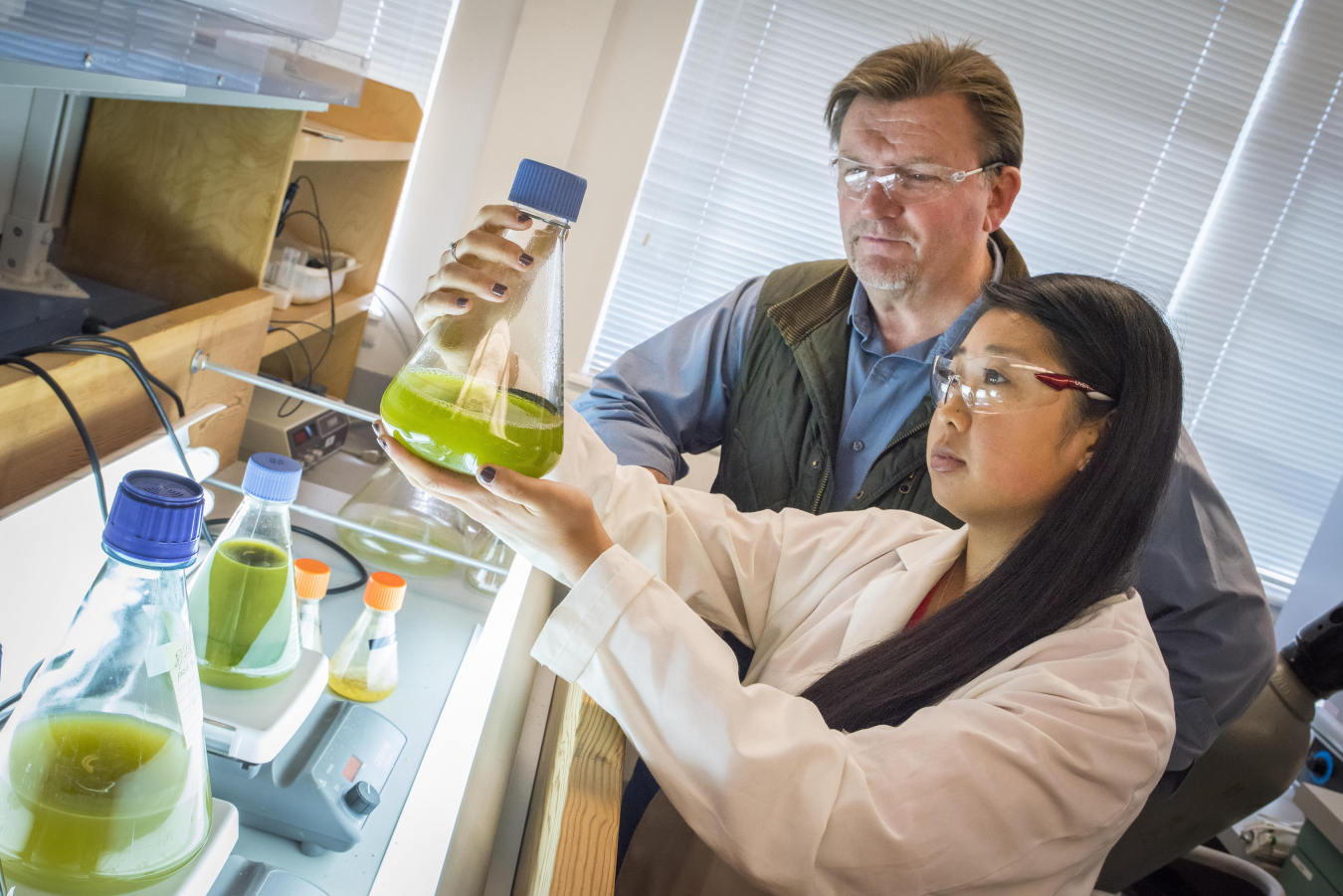The Algae Foundation, a non-profit organization committed to expanding the algae industry through research, education, and outreach, announced plans at the 2015 Algae Biomass Organization Summit to develop an innovative formal degree program. The Depar...
October 2, 2015
Workforce development and education 2015 Science Undergraduate Laboratory Internships spring interns and mentors at Lawrence Berkeley National Laboratory.
The Algae Foundation, a non-profit organization committed to expanding the algae industry through research, education, and outreach, announced plans at the 2015 Algae Biomass Organization Summit to develop an innovative formal degree program. The Department of Energy funded initiative seeks to strengthen workforce capabilities for commercial-scale algae production by developing a degree in algal cultivation technologies.
To support the development and implementation of a comprehensive curriculum, their multi-year plan calls for the formation of the Algae Technology Educational Consortium (ATEC), a partnership between academic institutions, national research laboratories, and industry leaders. This collaborative consortium will provide the specialized expertise needed to enhance the training of a workforce capable of supporting the fast-growing algae industry. As part of their multi-year strategy, they plan to implement and evaluate this curriculum in five geographically distinct locations.
In addition to the development of curricula and supplemental training materials (e.g., textbooks and course manuals), there will also be a significant outreach component. The consortium plans to work with the extension education system to develop an aquaculture-training curriculum in areas where algal cultivation and processing could create new jobs. Read more about this exciting project in the Algae Foundation press release.
This marks an important step in advancing the emerging bioeconomy. As production expands beyond ethanol to include the development of algal biofuels and bioproducts, the availability of skilled workers at all levels will be critical to achieving success. This work also supports the Department of Energy’s overall goals to develop, sustainable, cost-competitive biofuels and bioproducts that can reduce U.S. dependence on foreign oil, grow local economies, and reduce greenhouse gas emissions.

